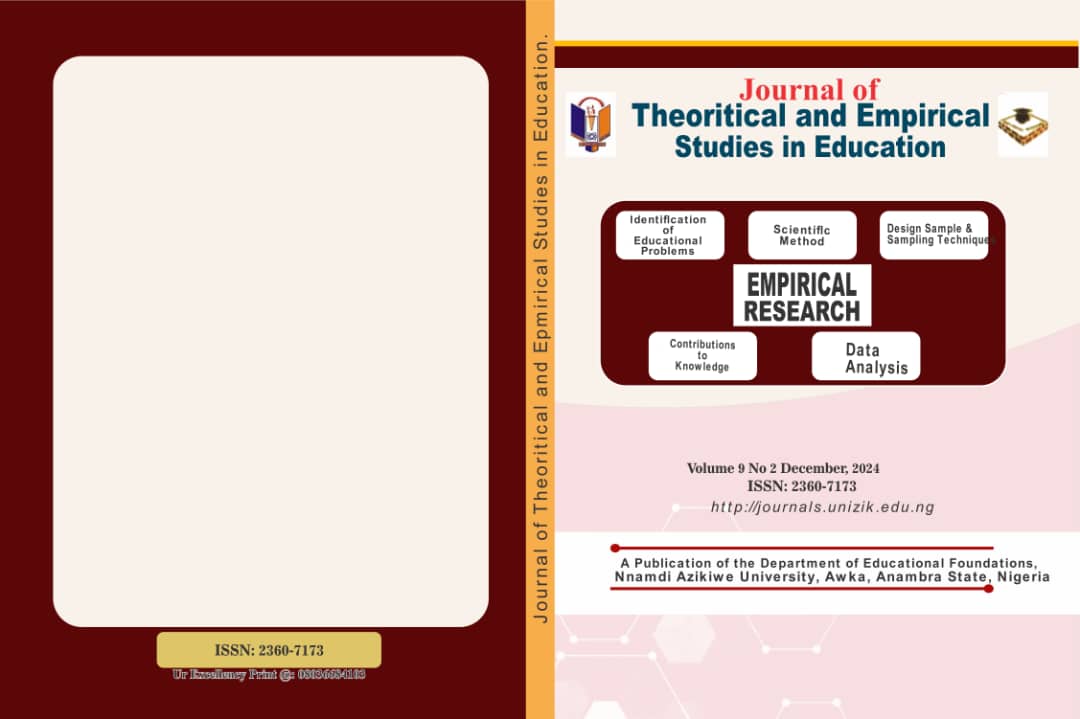INFLUENCE OF MONETARY INCENTIVE ON HUMAN RESOURCES MANAGEMENT IN SELECTED TERTIARY INSTITUTIONS IN OGUN STATE
Keywords:
Monetary incentives, Tertiary institution, Human Resources Management, Profit, StaffAbstract
The study examined the influence of monetary incentive on Human Resources Management in selected tertiary institutions in Ogun State. Two research questions guided the study and adopted the survey type of research design. The target population comprised of 150 academic staff and 150 Non-academic staff making a total of 300 respondents from Olabisi Onabanjo University, Ago-Iwoye
and Tai-Solarin University, Ijebu-Ode, Ogun State. The study employed the use of multi-staged sampling techniques of stratified, purposive, and simple random sampling techniques to select respondents. Self-structured instrument Influence of Monetary Incentive on Human Resources Management in Tertiary Institutions Questionnaire (IMIHRMTIQ) was used to gather data. instrument comprised 20 close-ended items where the first sub-scale was subjected to a Yes/No format while the second-sub scale was done with responses on a modified Likert scale of Strongly Agree (SA), Agree (A), Disagree (D), and Strongly Disagree (SD) respectively. Two experts in the Department of Human Resources Management, Faculty of Management Sciences, University of Benin validated the scale. The researcher adopted the split-half reliability technique to establish the internal consistency of the Instrument. The reliability coefficient yielded an r-value of 0.895, which means that the instruments was suitable for the study. Data were analysed using descriptive statistics and Z-test analysis tested at a significant level of 0.05. The study revealed that monetary incentives play a significant role in HRM. It then concluded that despite the pivotal role played by monetary incentives, tertiary institutions still find it difficult to incentivize their staff by paying their medical bills and sponsoring education. It is recommended that staff be exposed to compulsory in-service training twice annually.




